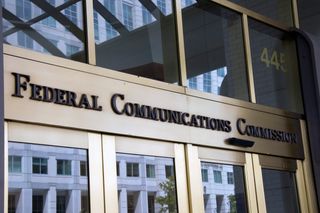FCC Proposes $9 Billion 5G Fund

The FCC has voted to seek comment on a proposal to give out up to $9 billion over a decade for 5G buildouts, but some commissioners had issues with the timing of the handout.
That funding is about $450 million per year more than the Universal Service Fund (USF) Mobility Fund allocation that it is replacing. The extra money will also come from USF. The FCC will target rural areas that will be unlikely to get 5G absent that support.
The proposal pulls the plug on the $4.5 billion Mobility Fund Phase II program and instead creates a 5G Fund that would put up to $9 billion toward Universal Service Fund support for 5G mobile wireless in rural areas to help close the digital divide.
The mobility fund supported 4G LTE as well.
The commission is seeking comment on whether it should start giving out the money before it collects new data on mobile broadband access (option A), which a majority has issues with, or B, which is to wait until more granular data mandated by Congress is collected.
The FCC has been migrating its phone subsidy program to broadband, and is now going to migrate its Mobility Fund Phase II (MF-II) subsidy program to focus on the next generation of wireless technology, 5G. That's because the FCC said the carrier data that was supposed to help the FCC target that Mobility Fund money could not be relied on.
That new 5G rural subsidy will be in the form of a two-phase reverse auction, which means bidders vie for money according to how inexpensively they could get the job done while meeting various service benchmarks.
Multichannel Newsletter
The smarter way to stay on top of the multichannel video marketplace. Sign up below.
Phase I will give out up to $8 billion for areas unlikely to see deployment without that money, including tribal lands. Phase II would give out $1 billion focused on ranches and farms for precision agriculture, which has been an avowed priority of President Trump.
The Phase II Mobility fund was to have gone to 4G LTE in unserved areas, but the FCC found that data submitted by providers to help target those funds were not sufficiently reliable to proceed with that Mobility Fund Phase II, though it is proposing to proceed with the 5G fund.
Commissioners Jessica Rosenworcel and Geoffrey Starks had issues with the item and dissented in part. They both said the FCC was making a false choice between speed and accuracy and both said the FCC should collect better data before handing out the money.
Commissioner Michael O'Rielly similarly had issues with giving out the money before getting better mobility data identifying where funds should go.
FCC chair Ajit Pai said the idea of going with option A--starting to hand out the funding before the new maps are done was a way to aggressively target rural areas using current data, rather than delay support up to two years until the more granular maps the FCC is developing are ready. He said there are advantages to each, but clearly favors the former.
He also said the FCC cannot pretend there is not a tradeoff between speed and accuracy.
Addressing the issue of transitioning the funding to 5G rather than supporting 3G or 4G, Pai said in his statement that it did not make sense to support outdated tech and that he would not condemn rural residents to playing a continual game of catch-up.
Pai: why give out to 5G when some still lack 3G? Why support outdated tech? Condemn rural to continual game of catch up.
An aggressive target rural areas by using current data. the other delay support until new granular maps the FCC is developing are complete. Advantages to each, often said governing is about making choices
Does imprecision justify a delay of up to two years. But cannot pretend there is no trade off between precision and speed. We cant have our cake and eat it to.
Contributing editor John Eggerton has been an editor and/or writer on media regulation, legislation and policy for over four decades, including covering the FCC, FTC, Congress, the major media trade associations, and the federal courts. In addition to Multichannel News and Broadcasting + Cable, his work has appeared in Radio World, TV Technology, TV Fax, This Week in Consumer Electronics, Variety and the Encyclopedia Britannica.

